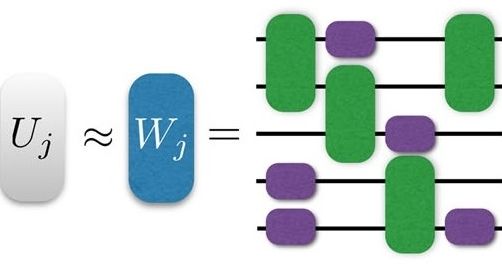(Phys.org)—Inspired by natural selection and the concept of “survival of the fittest,” genetic algorithms are flexible optimization techniques that can find the best solution to a problem by repeatedly selecting for and breeding ever “fitter” generations of solutions.
Now for the first time, researchers Urtzi Las Heras et al. at the University of the Basque Country in Bilbao, Spain, have applied genetic algorithms to digital quantum simulations and shown that genetic algorithms can reduce quantum errors, and may even outperform existing optimization techniques. The research, which is published in a recent issue of Physical Review Letters, was led by Ikerbasque Prof. Enrique Solano and Dr. Mikel Sanz in the QUTIS group.
In general, quantum simulations can provide a clearer picture of the dynamics of systems that are impossible to understand using conventional computers due to their high degree of complexity. Whereas computers calculate the behavior of these systems, quantum simulations approximate or “simulate” the behavior.
